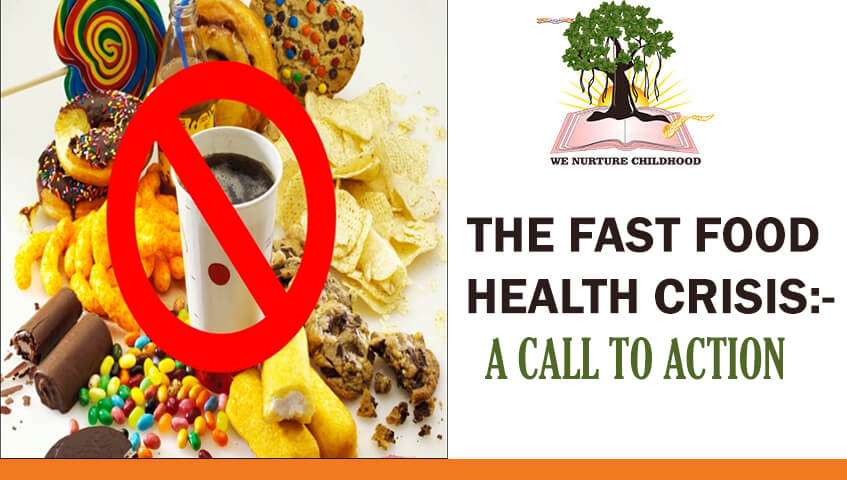
In recent years, Asia and Africa have experienced a concerning surge in the consumption of fast food and ultra-processed foods, leading to what experts have labeled a “snack attack.” This shift away from traditional and nutritious diets has raised serious health concerns, including an increased risk of cancer. In this article, we will explore the implications of this trend and highlight the efforts of educational institutions like Kidz Shaishav School and Vedic Girls Senior Secondary School in Jhajjar, which prioritize the health and well-being of their students by promoting healthy eating habits.
The Fast Food Epidemic:
Across Asian and African countries, people are increasingly succumbing to the allure of fast food, forsaking traditional and nourishing meals for quick and processed alternatives. Some attribute this trend to the influence of Western countries, while others point to the demands of busy lifestyles and economic constraints faced by lower-income individuals.
The Impact on Children:
Disturbingly, this shift towards fast food has even extended to children, who are now favoring items like bread rolls, sugary pastries, corned snacks, and pizza over nutritious options. Nutrition specialist Barry Popkin emphasizes that people are not just consuming these processed foods as occasional snacks but as frequent, inexpensive, and convenient meals, even for lunch and dinner.
The Health Consequences:
Barry Popkin and other experts warn of severe health risks associated with the prolonged consumption of fast food and ultra-processed foods. Laden with unhealthy fats, sugars, and additives, these foods contribute to the rising prevalence of chronic diseases like cancer, diabetes, and heart conditions. Alarmingly, cancer rates have increased significantly among individuals under the age of 50.
The Role of Educational Institutions:
To combat this worrying trend, awareness and education are crucial. Institutions like Kidz Shaishav School and Vedic Girls Senior Secondary School play a pivotal role in promoting healthier dietary habits among the younger generation.
Kidz Shaishav School, known as the best preschool in Jhajjar, not only imparts academic knowledge but also emphasizes healthy eating habits, ensuring that children grow up with a strong foundation in nutrition.
Vedic Girls Senior Secondary School, recognized as the top play school in Jhajjar, goes a step further by incorporating cooking classes into its curriculum. These classes empower students with the skills and knowledge needed to prepare balanced and nutritious meals, making healthier food choices a practical reality.
Conclusion:
In conclusion, the alarming rise in fast food consumption in Asia and Africa has dire health implications. It is imperative to acknowledge these consequences and take proactive measures to address them. Educational institutions like Kidz Shaishav School and Vedic Girls Senior Secondary School are not only shaping young minds but also equipping them with the tools to make healthier dietary choices. By promoting awareness and practical solutions, we can steer the current trajectory away from a fast-food epidemic and toward a healthier and more balanced future for our communities.
